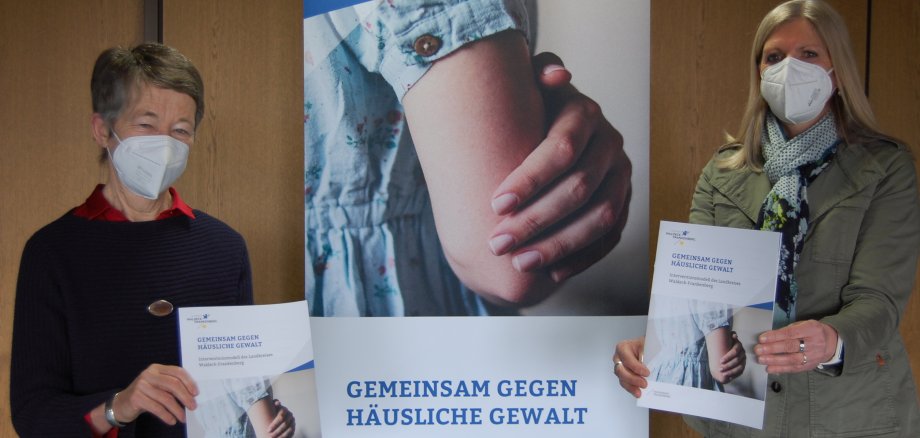Helping victims of domestic violence: Women's Office presents concept
Since 2000, the Round Table against Domestic Violence has been working in Waldeck-Frankenberg under the auspices of the Women's Office of the district. So far, 27 institutions have joined forces to offer help to victims of domestic violence. With the revised intervention model, the Round Table presents a concept with which all participants describe the prerequisites and objectives of their cooperation in order to further expand intervention and prevention possibilities in Waldeck-Frankenberg.
Unfortunately, experiences of violence in the domestic sphere are part of many people's lives - also in the Waldeck-Frankenberg district. Violence in interpersonal relationships occurs in all social classes and is therefore a highly explosive topic. Where it happens, it is often tabooed - out of fear, shame and helplessness. "It is easier to close one's eyes to what must not and should not happen than to realise that women and children in particular are visibly and invisibly physically and emotionally injured," say Beate Friedrich, the district's women's representative, and Monika Lacher from the Round Table against Violence in the Domestic Sphere.
However, the discussion of gender roles in recent decades has contributed to a sensitisation towards this problem. Public institutions have also recognised the need for change and have started initiatives to improve the situation. The Protection against Violence Act, which has been in force since 2002, is having an effect: it advocates the principle "Whoever hits has to leave - the victim stays in the flat". What happens behind the door of the flat in terms of violence is no longer a private matter; cases that become known are reported to the police.
The revised intervention model therefore pursues the primary goal of bundling offers of help in the district in order to offer effective and quick support to victims of domestic violence. Violence - especially against women and children - is thus to be prevented and the public is to be made even more aware of the issue. The support services are therefore based on the principle of encouraging victims to help themselves, and they provide victims with special support in establishing contact with support services and further support in the help process.
